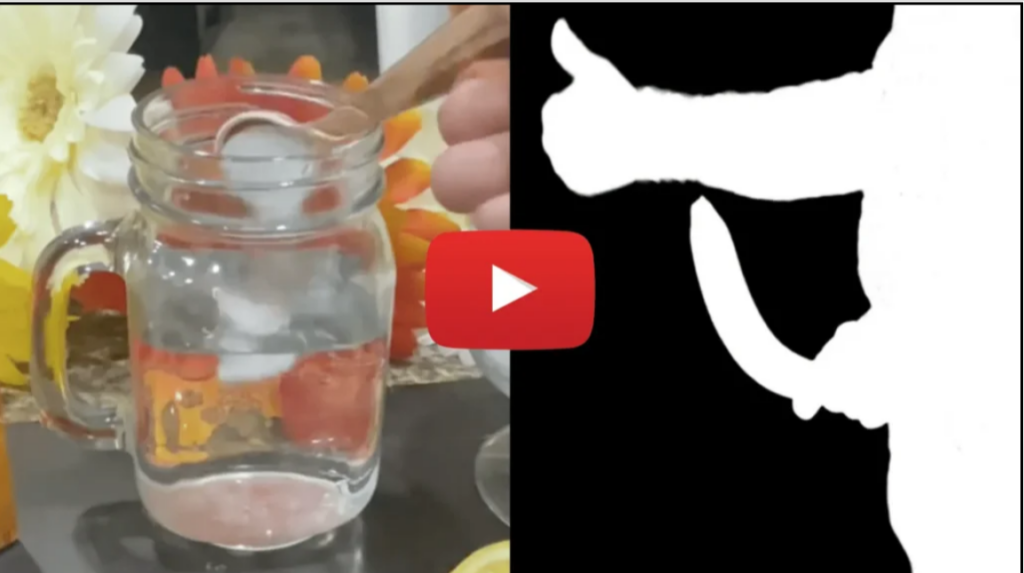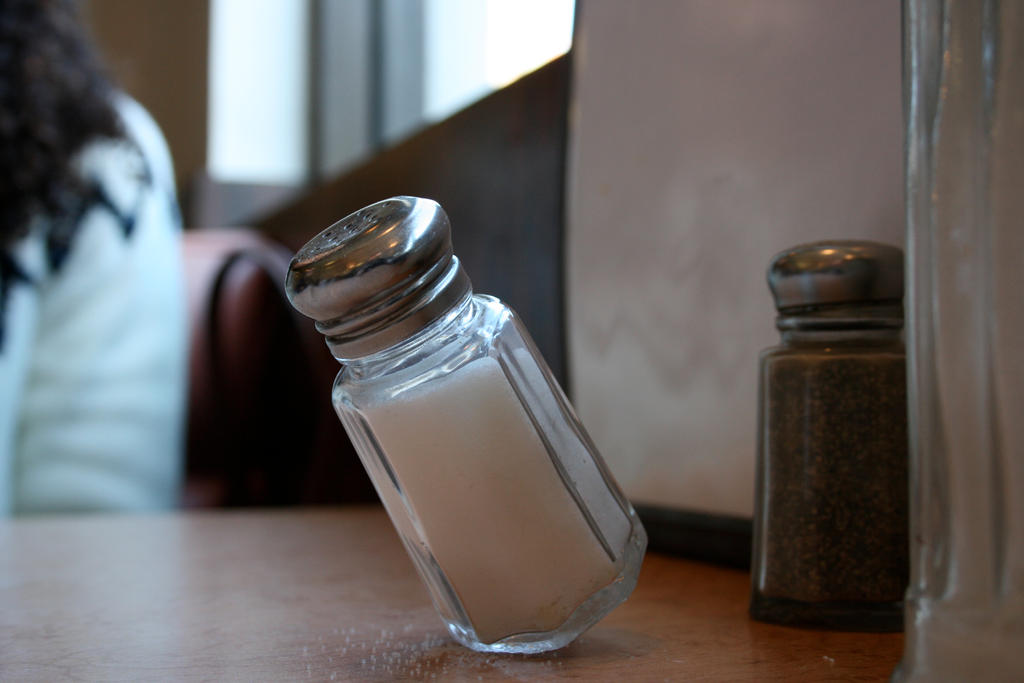Have you ever heard of the salt trick? This seemingly simple method has sparked widespread curiosity and debate online. The salt trick promises impressive results, from removing stubborn stains to enhancing the flavor of food. But is the salt trick real, or is it just another internet myth?
In a world where information spreads rapidly, it's essential to separate fact from fiction. Whether you're a home cook, a DIY enthusiast, or simply someone looking for practical solutions, understanding the science behind the salt trick can help you make informed decisions.
This article will delve into the science, history, and applications of the salt trick. By the end, you'll have a clear understanding of whether this method is worth trying or if it's just hype. Let's get started!
Read also:Mark Zuckerberg Kids A Comprehensive Look Into The Family Life Of The Tech Mogul
Table of Contents
- What is the Salt Trick?
- A Brief History of the Salt Trick
- The Science Behind the Salt Trick
- Using the Salt Trick in Cooking
- Salt Trick for Cleaning
- Health Benefits of the Salt Trick
- Common Myths About the Salt Trick
- Alternatives to the Salt Trick
- Tips for Maximizing the Salt Trick
- Conclusion: Is the Salt Trick Real?
What is the Salt Trick?
The salt trick refers to the use of ordinary table salt or sea salt to solve various problems around the home, kitchen, or even in personal care. From removing stains on clothing to enhancing the flavor of food, the salt trick has gained popularity as a versatile solution. But what exactly makes salt so effective?
Salt, or sodium chloride, is a natural compound with unique properties. Its ability to absorb moisture, break down grease, and act as an abrasive makes it a powerful tool for various applications. While the salt trick is often praised for its simplicity, its effectiveness depends on the specific problem you're trying to solve.
Applications of the Salt Trick
- Enhancing food flavor
- Removing stains from fabric
- Cleaning household items
- De-icing driveways and sidewalks
A Brief History of the Salt Trick
Salt has been a staple in human civilization for thousands of years. Ancient cultures used salt not only as a seasoning but also for its preservative and medicinal properties. The salt trick, as we know it today, likely evolved from these traditional uses.
Historically, salt was used to preserve food by drawing out moisture, inhibiting the growth of bacteria. Over time, people discovered its cleaning and stain-removal capabilities. The salt trick gained renewed attention in the modern era, thanks to social media platforms and viral videos showcasing its versatility.
Evolution of the Salt Trick
From ancient preservation techniques to contemporary cleaning hacks, the salt trick has evolved to meet the needs of different eras. Today, it's a go-to solution for many households, blending tradition with innovation.
The Science Behind the Salt Trick
To understand whether the salt trick is real, we need to examine the science behind it. Salt's effectiveness lies in its chemical properties and physical characteristics.
Read also:Matthew Mcconaughey Dad Exploring The Life And Legacy Of His Father
Salt is hygroscopic, meaning it attracts and absorbs moisture. This property makes it useful for removing stains caused by liquids. Additionally, salt's abrasive nature helps scrub away stubborn dirt and grime. When dissolved in water, salt forms ions that can break down grease and other substances, making it a powerful cleaning agent.
Key Properties of Salt
- Hygroscopic (moisture-absorbing)
- Abrasive
- Ion-forming when dissolved in water
Using the Salt Trick in Cooking
In the kitchen, the salt trick is a chef's best friend. Whether you're enhancing the flavor of a dish or preserving ingredients, salt plays a crucial role. One popular application is using salt to remove impurities from vegetables or eggs.
For example, soaking eggs in saltwater can help identify cracked shells. The saltwater solution causes good eggs to sink while bad ones float. Similarly, sprinkling salt on a cutting board can make it easier to chop sticky ingredients like onions or garlic.
Tips for Using Salt in Cooking
- Use kosher salt for better flavor distribution
- Season food gradually to avoid over-salting
- Experiment with different types of salt for unique flavors
Salt Trick for Cleaning
When it comes to household cleaning, the salt trick is a game-changer. Salt's abrasive and moisture-absorbing properties make it ideal for tackling tough stains and grime. For instance, mixing salt with vinegar creates a powerful cleaning solution for rusted surfaces or stained cookware.
Another common application is using salt to clean coffee makers or remove odors from sponges. Simply dissolve salt in warm water and soak the items for a few hours. The salt will neutralize odors and break down residue.
Popular Cleaning Uses of Salt
- Removing rust from metal surfaces
- Cleaning coffee makers and tea kettles
- Deodorizing sponges and cutting boards
Health Benefits of the Salt Trick
While the salt trick is primarily known for its practical applications, it also offers potential health benefits. Salt's antimicrobial properties make it useful for disinfecting minor wounds or treating sore throats. Gargling with saltwater can reduce inflammation and kill bacteria in the mouth.
However, it's important to use salt in moderation, especially for individuals with high blood pressure or heart conditions. Excessive salt consumption can lead to health issues, so always consult a healthcare professional before using salt for health purposes.
Health Uses of Salt
- Gargling with saltwater for sore throats
- Using salt baths for muscle relaxation
- Applying salt compresses for minor wounds
Common Myths About the Salt Trick
Despite its popularity, the salt trick is surrounded by misconceptions. One common myth is that salt can remove all types of stains instantly. While salt is effective for certain stains, such as wine or grass, it may not work for oil-based or permanent markers.
Another misconception is that salt can replace professional cleaning products. While salt is a natural and affordable alternative, it may not always provide the same level of effectiveness as specialized cleaners. It's important to use the salt trick as a supplement, not a substitute, for proper cleaning solutions.
Debunking Salt Trick Myths
- Salt is not a universal stain remover
- Salt should not replace professional cleaning products
- Salt is not a cure-all for health issues
Alternatives to the Salt Trick
While the salt trick is versatile, there are alternatives that may work better for specific tasks. Baking soda, for example, is another natural compound with similar properties to salt. It's less abrasive and can be used for delicate surfaces.
Vinegar is another excellent option for cleaning and deodorizing. Its acidic nature makes it effective against mold, mildew, and hard water stains. For cooking, herbs and spices can enhance flavor without the need for excessive salt.
Comparing Salt to Alternatives
- Baking soda for delicate surfaces
- Vinegar for mold and mildew removal
- Herbs and spices for flavor enhancement
Tips for Maximizing the Salt Trick
To get the most out of the salt trick, follow these tips:
- Use the right type of salt for the task (table salt, sea salt, kosher salt)
- Combine salt with other natural ingredients like vinegar or lemon juice
- Test the salt trick on a small area before applying it to larger surfaces
By understanding the limitations and potential of the salt trick, you can achieve better results and avoid damaging surfaces or fabrics.
Conclusion: Is the Salt Trick Real?
In conclusion, the salt trick is indeed real and offers a range of practical applications. From enhancing food flavor to cleaning household items, salt's versatility makes it a valuable tool for everyday life. However, it's important to use the salt trick responsibly and in conjunction with other methods when necessary.
We encourage you to try the salt trick for yourself and share your experiences in the comments below. For more tips and tricks, explore our other articles on natural solutions and household hacks. Together, let's uncover the truth behind life's simplest yet most effective methods!
References:
- https://www.ncbi.nlm.nih.gov/
- https://www.sciencedirect.com/
- https://www.mayoclinic.org/


